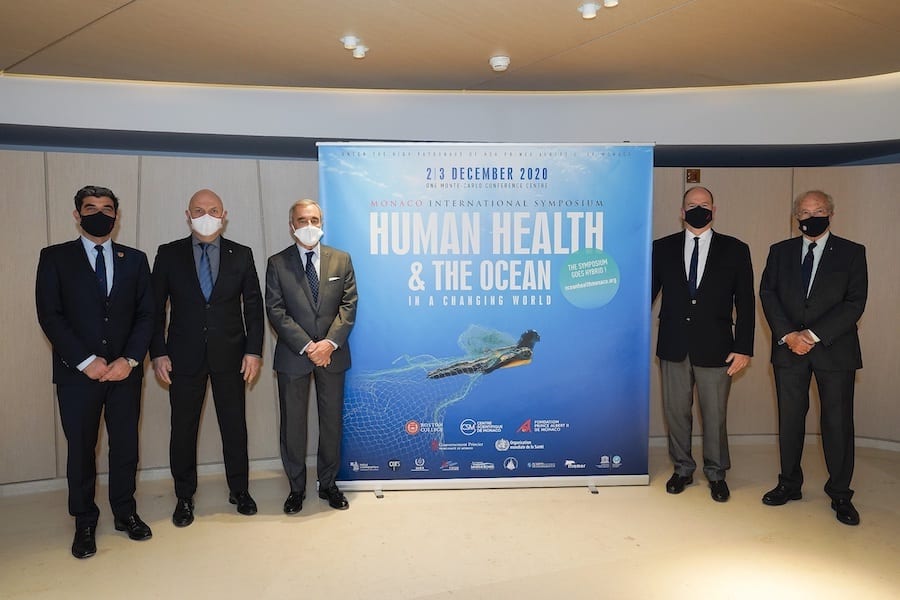“Ocean pollution is widespread, worsening and, in most countries, poorly controlled.” That’s the key message to have come out of the first Human Health and Ocean symposium held in Monaco.
The forum was organised by Boston College, the Scientific Centre of Monaco and the Prince Albert II of Monaco Foundation, and took place over two days from 2nd to 3rd December.
International scientists from various research fields took stock of the current situation, discussing both the positive effects that the marine environment can have on human health, as well as the negative effects such as acidification of the oceans, rising sea levels and weather phenomena.
At the forefront of discussions was ocean pollution, which is the subject of a dedicated scientific report, coordinated by Boston College and the Scientific Centre of Monaco. “Human activities have resulted in a complex mixture of substances entering into the aquatic environment,” the authors conclude in the report. “This mixture reaches the oceans through rivers, runoff, atmospheric deposition and direct release. Ocean pollution has multiple negative impacts on ecosystems and human health, especially for vulnerable populations.”
The report was published at the end of the Human Health and the Ocean symposium and is supported by the Monaco Declaration, read in the presence of HSH Prince Albert II of Monaco during the closing session.
Beyond the alarming findings that it presents, the declaration makes a recommendation to “the leaders of all countries and the citizens of the whole earth” to “advance the health and wellbeing of humans by preventing ocean pollution.”
Photo from left to right: Olivier Wenden, Laurent Anselmi, Prof. Patrick Rampal, Prince Albert II of Monaco and Bernard Fautrier © Michael Alesi Government Communication Department
Monaco Declaration delivered at ocean symposium
